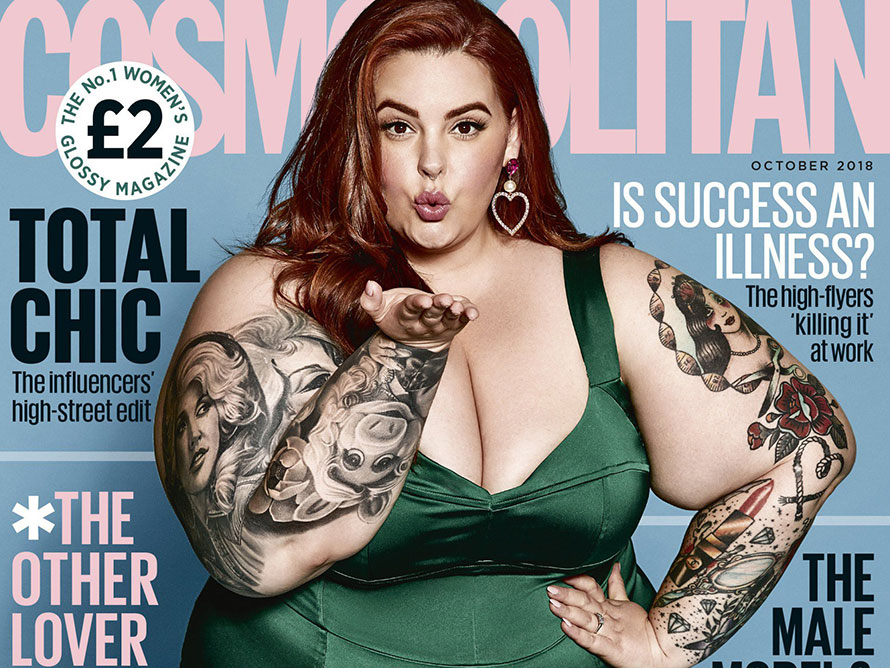Should we be more fat positive? Yesterday, a widely shared article claimed that 'everything you know about obesity is wrong.' It described a 'futile war on fat people' that ruins lives.
Shock report savages ‘cruel war’ on fat people
Should we be more fat positive? Yesterday, a widely shared article claimed that 'everything you know about obesity is wrong.' It described a 'futile war on fat people' that ruins lives.
"I have this sense I'm fat and I shouldn't be," a medical technician told journalist Michael Hobbes in a groundbreaking article published by HuffPost yesterday. "It feels like the worst kind of weakness."
The article states that 40% of obeseFor adults, obesity is defined as a Body Mass Index (BMI) of 30 or more. A BMI of 25 or more is classed as overweight. Americans experience daily stigma and discrimination for their size. Last year a surveyWhen you ask a group of people questions about what they think about a particular topic. found that 89% have been bullied by a partner. Hobbes wrote that he had "never written a story where so many of my sources cried during interviews".
He argued that all of this is having a dramatic effect on their health. In 2015, a studyThe study conducted two tests on 50 students. At the beginning of the experiment, half were given a cup of tea, and half a glass of water. The groups were then given creative challenges, like coming up with a "cool" name for a noodle restaurant. found that fat people who had experienced discrimination had shorter life expectancies than fat people who had not. It is possible that "the stigma associated with being overweight is more harmful than actually being overweight," it suggested.
What's more, Hobbes described how, by simply telling obese patients to lose weight, doctors often missed serious health issues. "I had an eating disorder. And my doctor was congratulating me," one woman recalled. Others avoid seeing doctors altogether, making it more likely that health problems go undiagnosed and untreated.
According to the World Health Organisation, obesity rates around the world have almost tripled since 1975. In England, 26% of adults are obese, as are one in five children by the time they leave primary school.
The situation has been described as an epidemic, as obesity has been linked to an increased risk of conditions like diabetes, heart disease, some types of cancer and depression. All of this costs the NHS an extra 5.1 billion each year.
Yet Hobbes argues that telling people to diet does not work for two reasons. Firstly, up to 98% of attempts to lose weight fail. Secondly, "weight and health are not perfect synonyms." In other words, a fat person who exercises and eats lots of fruit and vegetables can be healthier than a thin person who does neither.
Is it time to change the way we think about weight?
Absolutely, say body positivity campaigners. For far too long, society has bullied and shamed people for being big, then dressed it up as concern about their health. In reality, this only makes people more miserable and less likely to ask for help. It is time to change our attitudes and embrace everyone for who they are, regardless of size.
Of course no one should be bullied, but obesity should not be normalised or celebrated either, say others. Last year a study found that "fat but fit" people are still 50% more likely to have heart disease than people with a "normal" weight. Being overweight should be treated with the same seriousness as health risks like smoking or binge drinking.
Keywords
Obese - For adults, obesity is defined as a Body Mass Index (BMI) of 30 or more. A BMI of 25 or more is classed as overweight.
Survey - When you ask a group of people questions about what they think about a particular topic.
Study - The study conducted two tests on 50 students. At the beginning of the experiment, half were given a cup of tea, and half a glass of water. The groups were then given creative challenges, like coming up with a "cool" name for a noodle restaurant.
Shock report savages ‘cruel war’ on fat people

Glossary
Obese - For adults, obesity is defined as a Body Mass Index (BMI) of 30 or more. A BMI of 25 or more is classed as overweight.
Survey - When you ask a group of people questions about what they think about a particular topic.
Study - The study conducted two tests on 50 students. At the beginning of the experiment, half were given a cup of tea, and half a glass of water. The groups were then given creative challenges, like coming up with a "cool" name for a noodle restaurant.
